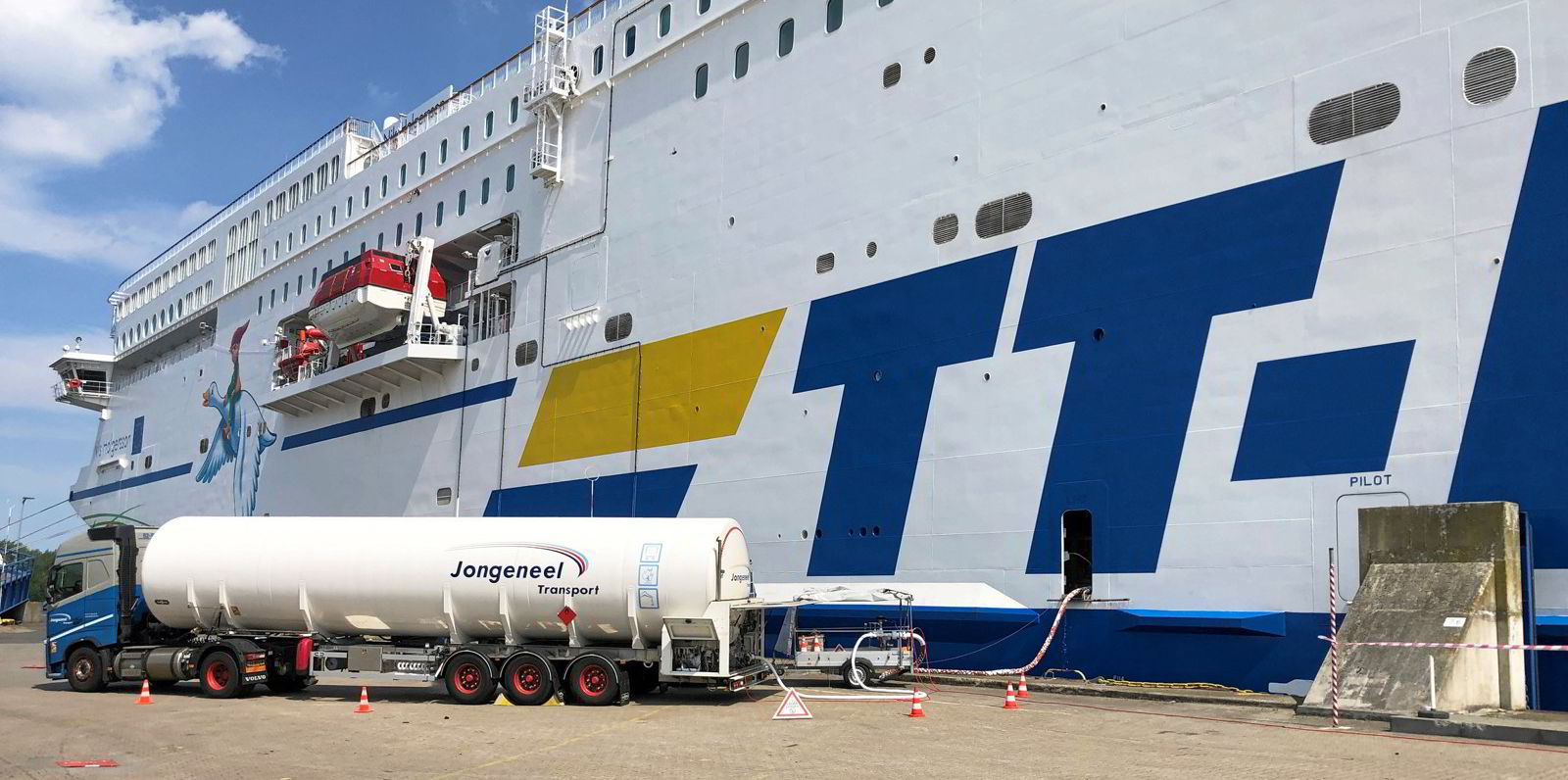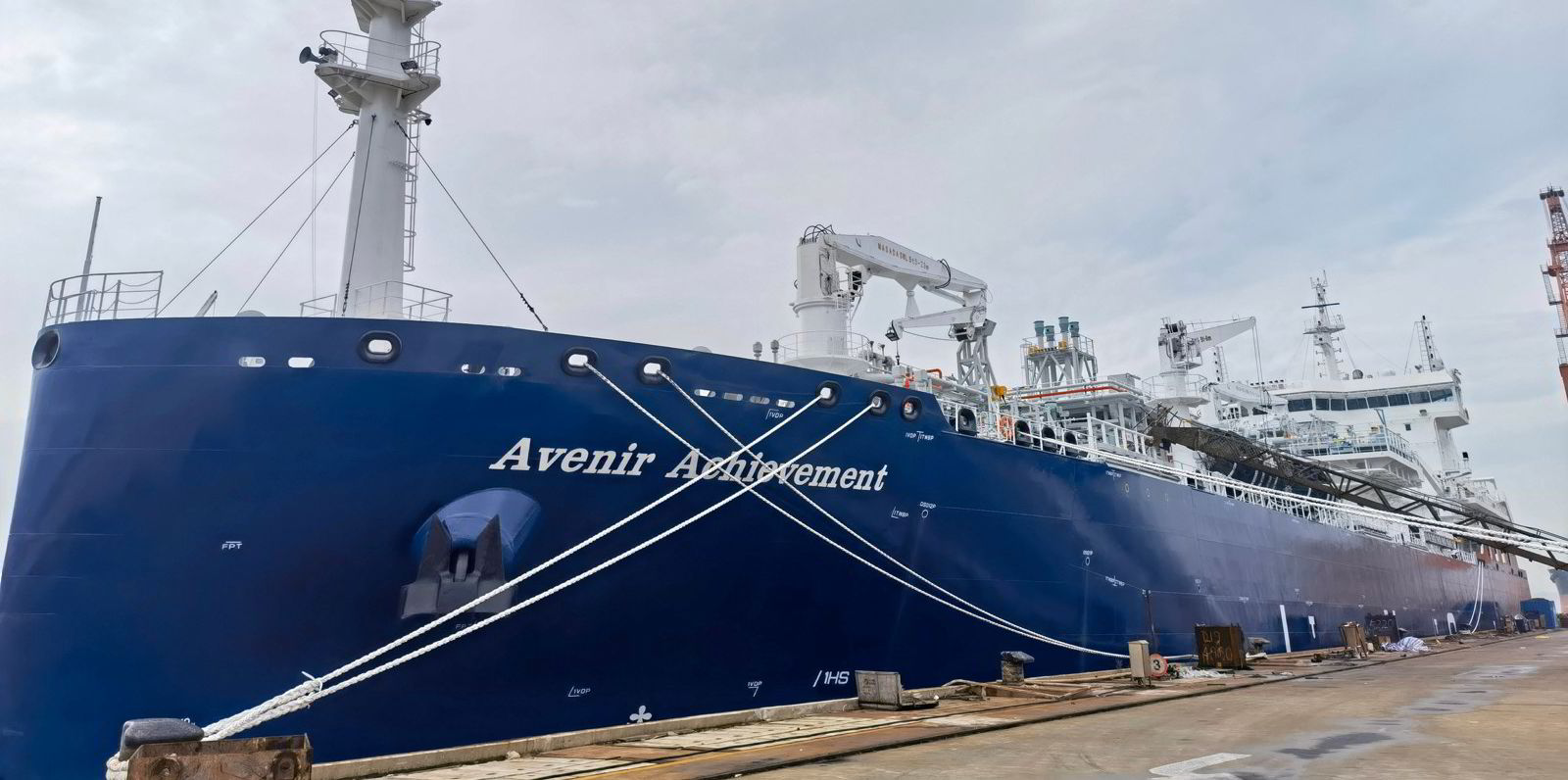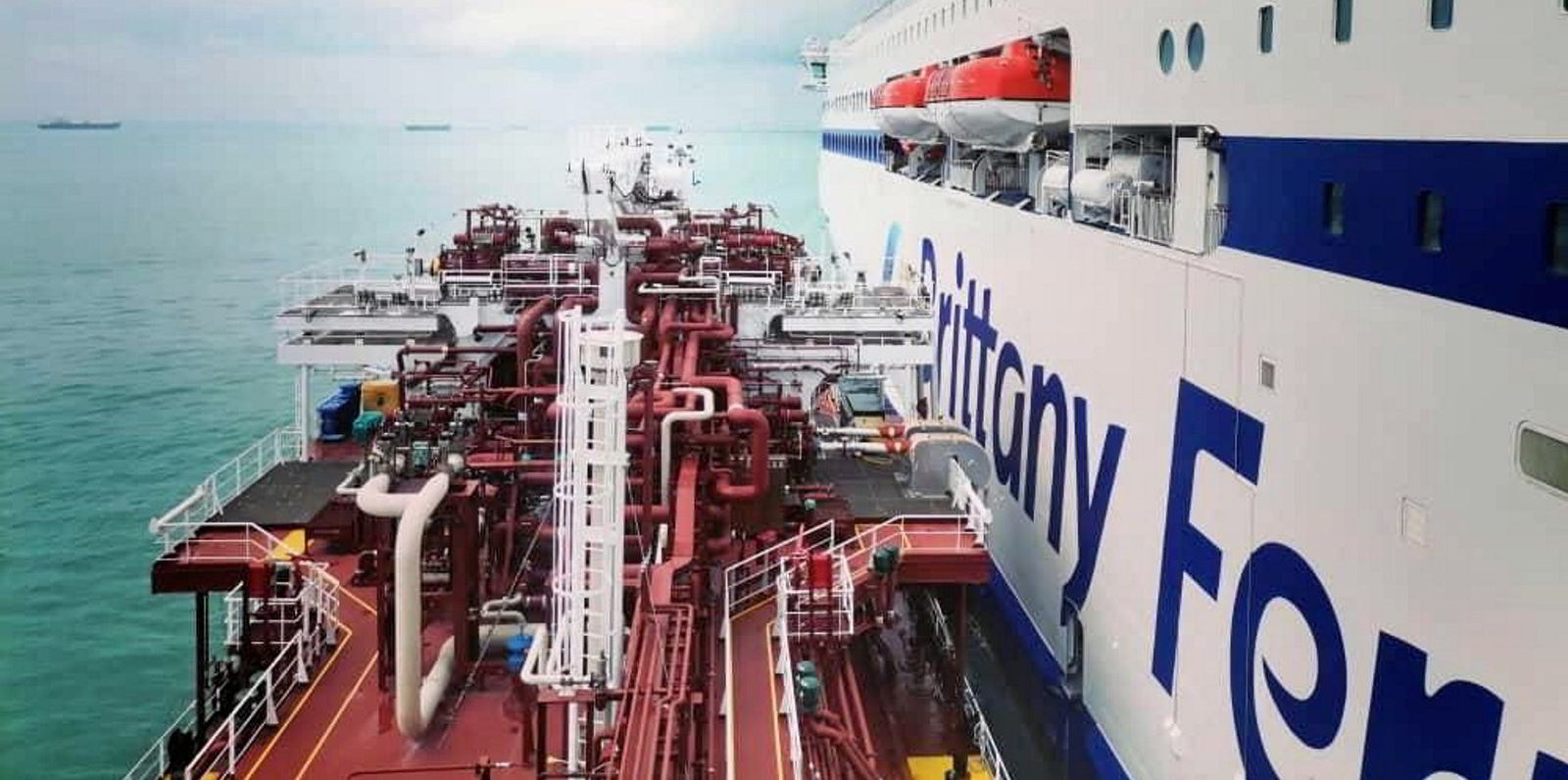Small-scale and bunkering specialist Avenir LNG has achieved two firsts with the supply of bio-LNG to a new ropax ferry in Germany.
The company said its subsidiary Avenir Marine arranged the first LNG and bio-LNG delivery in the Port of Lubeck.
Avenir said 10% of the fuel delivered to the vessel was bio-LNG.
The product was supplied to TT-Line’s 56,138-gt, 800-passenger roPax ferry newbuilding Nils Holgersson by truck in an operation in which Avenir partnered with German LNG infrastructure Liquind 24/7 and European biomethane trader Landwarme.
Avenir commercial director for LNG bunkering Jan Schubert, told TradeWinds this was the first bio-LNG delivery organised by the company.
He said the bio-LNG was produced on a mass-balance process — combining physical LNG with certified volumes.
Avenir said: “The operation is the start of a long-term cooperation between Avenir LNG and TT-Line for the supply of LNG and BioLNG to two new RoPax ferries that will transport passengers and cargo between Baltic Sea ports in Sweden, Germany, and Poland.”
But it did not give any details of the contract to supply the two ships.
Avenir added: “ .. the environment and population in the region are immediately benefitting from the environmental advantages of transitioning these vessels to LNG”.
Avenir chief executive Peter Mackey said the delivery was bio-LNG underlines the commitment of all parties involved to reduce emissions and increase the sustainability of shipping even further through the development of a suitable small-scale LNG infrastructure.
He said: “Avenir is committed to the deployment of bunker vessels and the construction of new terminals, to improve the availability of environmentally friendly fuels for our customers across the marine, industry, and logistics segments.”
Liquind 24/7 managing director Christian Schneider said the bunkering operation shows the importance of cooperation between different small-scale LNG players to develop supply chains for those companies that are taking the decision to reduce their environmental footprint.
Landwarme chief executive Zoltan Elek said that despite existing regulatory barriers bio-LNG is “the most viable solution today” to reduce quickly emissions in maritime transport and guarantee energy security along with independence on a path to carbon neutrality.






